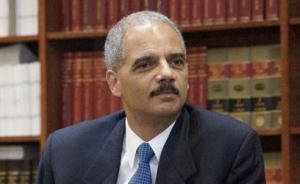The Global Commission on Drug Policy, made up of former heads of state and other international dignitaries, is calling for fundamental reform of the international drug control system.
Poland is moving toward the decriminalization of drug possession, but it's not quite there yet.
Last month a bipartisan group of US Representatives introduced three new bills to protect medical marijuana patients, providers and businesses. Please visit our action alert web site to take action in support.
Vermont's Democratic governor has stood up to threats from the US attorney, signing into law the state's medical marijuana dispensary bill.
The Fair Sentencing Act, which reduced disparities between crack and powder cocaine sentences, could be about to get even fairer. The US Sentencing Commission is pondering making it retroactive, and Attorney General Holder agrees.
Connecticut is only a stroke of the governor's pen from becoming the latest decrim state.
New Chicago Housing Authority CEO Lewis Jordan has floated a plan to require drug testing of all adult residents. Thursday night, he got a taste of what residents think of his bright idea.
A bill-killing deadline came and went Friday in Sacramento, and it ain't looking especially pretty for marijuana reform so far.
As prohibition-related violence continues unabated, peace marchers are heading for Ciudad Juarez.
Criminal cops -- they just keep coming. Oh, and prison guards and Customs agents, too.
Events and quotes of note from this week's drug policy events of years past.
The global war on drugs is a failure and governments worldwide should shift from repressive, law-enforcement centered policies to new ways of legalizing and regulating drugs, especially marijuana, as a means of reducing harm to individuals and society, a high-profile group of world leaders said in a report issued last Thursday.

Richard Branson blogs about being invited onto the global commission, on virgin.com.
The
Global Commission on Drug Policy, whose members include former UN Secretary-General Kofi Annan and former presidents of Brazil, Colombia, and Mexico, said the global prohibitionist approach to drug policy, in place since the UN adopted the Single Convention on Narcotic Drugs a half-century ago, has failed to reduce either the drug supply or consumption.
Citing UN figures, the report said global marijuana consumption rose more than 8% and cocaine use 27% in the decade between 1998 and 2008. Again citing UN figures, the group estimated that there are some 250 million illegal drug consumers worldwide. "We simply cannot treat them all as criminals," the report concluded.
The report also argued that arresting "tens of millions" of low-level dealers, drug couriers, and drug-producing farmers not only failed to reduce production and consumption, but also failed to address the economic needs that pushed people into the trade in the first place.
Prohibitionist approaches also foster violence, most notably in the case of Mexico, the group argued, and impede efforts to stop the spread of diseases like HIV/AIDS and Hepatitis. Governments should instead turn to science- and evidence-based public health and harm reduction approaches, the group said. It cited studies of nations like Portugal and Australia, where the decriminalization of at least some drugs has not led to significantly greater use.
"Overwhelming evidence from Europe, Canada and Australia now demonstrates the human and social benefits both of treating drug addiction as a health rather than criminal justice problem and of reducing reliance on prohibitionist policies," said former Swiss president Ruth Dreifuss. "These policies need to be adopted worldwide, with requisite changes to the international drug control conventions."
The report offered a number of recommendations for global drug policy reform, including:
- End the criminalization, marginalization and stigmatization of people who use drugs but who do no harm to others.
- Encourage experimentation by governments with models of legal regulation of drugs (especially cannabis) to undermine the power of organized crime and safeguard the health and security of their citizens.
- Ensure that a variety of treatment modalities are available -- including not just methadone and buprenorphine treatment but also the heroin-assisted treatment programs that have proven successful in many European countries and Canada.
- Apply human rights and harm reduction principles and policies both to people who use drugs as well as those involved in the lower ends of illegal drug markets such as farmers, couriers and petty sellers.
"Fifty years after the initiation of the UN Single Convention on Narcotic Drugs, and 40 years after President Nixon launched the US government's global war on drugs, fundamental reforms in national and global drug control policies are urgently needed," said former president of Brazil Fernando Henrique Cardoso. "Let's start by treating drug addiction as a health issue, reducing drug demand through proven educational initiatives, and legally regulating rather than criminalizing cannabis."
"The war on drugs has failed to cut drug usage, but has filled our jails, cost millions in tax payer dollars, fuelled organized crime and caused thousands of deaths. We need a new approach, one that takes the power out of the hands of organized crime and treats people with addiction problems like patients, not criminals," said Richard Branson, founder of the Virgin Group and cofounder of The Elders, United Kingdom. "The good news is new approaches focused on regulation and decriminalization have worked. We need our leaders, including business people, looking at alternative, fact based approaches. We need more humane and effective ways to reduce the harm caused by drugs. The one thing we cannot afford to do is to go on pretending the war on drugs is working."
The Obama administration is having none of it. "Making drugs more available -- as this report suggests -- will make it harder to keep our communities healthy and safe," Rafael Lemaitre, spokesman for the Office of National Drug Control Policy told the Wall Street Journal the same day the report was released.
That sentiment is in line with earlier pronouncements from the administration that while it will emphasize a public health approach to drug policy, it stands firm against legalization. "Legalizing dangerous drugs would be a profound mistake, leading to more use, and more harmful consequences," drug czar Gil Kerlikowske said earlier this year.
But if the White House isn't listening, US drug reformers are -- and they're liking what they're hearing.
"It's no longer a question of whether legalizing drugs is a serious topic of debate for serious people," said Neill Franklin, executive director of Law Enforcement Against Prohibition (LEAP) and a 34-year veteran police officer from Baltimore, Maryland. "These former presidents and other international leaders have placed drug legalization squarely on the table as an important solution that policymakers need to consider. As a narcotics cop on the streets, I saw how the prohibition approach not only doesn't reduce drug abuse but how it causes violence and crime that affect all citizens and taxpayers, whether they use drugs or not."
"These prominent world leaders recognize an undeniable reality. The use of marijuana, which is objectively less harmful than alcohol, is widespread and will never be eliminated," said Rob Kampia, executive director of the Marijuana Policy Project. "They acknowledge that there are only two choices moving forward. We can maintain marijuana's status as a wholly illegal substance and steer billions of dollars toward drug cartels and other criminal actors. Or, we can encourage nations to make the adult use of marijuana legal and have it sold in regulated stores by legitimate, taxpaying business people. At long last, we have world leaders embracing the more rational choice and advocating for legal, regulated markets for marijuana. We praise these world leaders for their willingness to advocate for this sensible approach to marijuana policy."
"The long-term impact of the Global Commission's efforts will be defining," predicted David Borden, executive director of StoptheDrugWar.org (publisher of this newsletter). "Most people don't realize that there are leaders of this stature who believe prohibition causes much of the harm commonly seen as due to drugs. As more and more people hear these arguments, coming from some of the most credible people on the planet, legalization will come to be viewed as a credible and realistic option."
Other commission members include Louise Arbour, former UN High Commissioner for Human Rights, Canada; Fernando Henrique Cardoso, former President of Brazil (chair); Marion Caspers-Merk, former State Secretary at the German Federal Ministry of Health; Maria Cattaui former Secretary-General of the International Chamber of Commerce, Switzerland; Carlos Fuentes, writer and public intellectual, Mexico; Asma Jahangir, human rights activist, former UN Special Rapporteur on Arbitrary, Extrajudicial and Summary Executions, Pakistan; Michel Kazatchkine, executive director of the Global Fund to Fight AIDS, Tuberculosis and Malaria , France; Mario Vargas Llosa, writer and public intellectual, Peru; George Papandreou, Prime Minister of Greece; George P. Shultz, former Secretary of State, United States (honorary chair); Javier Solana, former European Union High Representative for the Common Foreign and Security Policy , Spain; Thorvald Stoltenberg, former Minister of Foreign Affairs and UN High Commissioner for Refugees, Norway; Paul Volcker, former Chairman of the United States Federal Reserve and of the Economic Recovery Board; John Whitehead, banker and civil servant, chair of the World Trade Center Memorial Foundation, United States; and Ernesto Zedillo, former President of Mexico.
While the Obama administration may be loathe to listen, the weight of world opinion, as reflected in the composition of the global commission that issued this report, is starting to create stress fractures in the wall of prohibition. A half-century of global drug prohibition has showed us what it can deliver, and the world is increasingly finding it wanting.
back to top
With President Bronislaw Komorwski signing into law late last month an amendment to the country's harsh, decade-old drug laws, Poland has taken a step in the direction of the decriminalization of drug possession. But how much of a difference the new law will make is unclear at this point, and it won't go into effect for another six months. The new law also increases sentences for some drug distribution offenses.

21st Century Warsaw. Now, if Poland can just move its drug laws into the 21st Century. (Image via Wikimedia.org)
Under the old law, possession of even the smallest quantity of illegal drugs could lead to a three-year prison sentence. Under the amended drug law, people would still be arrested, but prosecutors will have the option of not charging people for personal drug possession if the quantity involved is small, if it is a first offense, or if the person is drug dependent.
It is one thing to have the law on the books, but whether prosecutors will take advantage of it remains to be seen. The experience in other European countries that have enacted similar laws suggests that they will have to be prodded.
Also unclear at this point is just what will constitute a "small" amount of drugs for personal use. That is an issue that is now being contested. In a sign of how volatile the issue is, demonstrators demanding a 30 gram figure for marijuana, the ability to grow at home, and amnesty for pot prisoners,
clashed last weekend with police in Warsaw just days after the president signed the new law. Nearly 30 people were arrested on drug charges, and police were attacked with eggs and empty beer bottles.
The protest was called by the Free Hemp Initiative, and police estimated some 6,000 people attended. Demonstrators shouted slogans and waved banners with exhortations such as "Plant It, Smoke It, Legalize It!" on them. Organizers managed to cool down the crowd after the violence broke out by reminding people of their nonviolent stance.
Activists are planning to both push prosecutors to use the new law and to try to open up discussion around the personal use threshold in a bit to push further in the direction of real decriminalization.
Polish and international experts cautioned about making too much of the reform. "While this is only a small change, it is nevertheless a step in the right direction," said the
International Drug Policy Consortium.
The reform "seems quite modest and even marginal," Dr Mateusz Klinowski, Chair of Legal Theory at the Jagiellonian University's Department of Law and Administration, told the
Krakow Post. "Though the amendment doesn't seem to be a major breakthrough, at least it creates hope of future reforms," he added. "The first step has been taken and now it is public opinion and non-governmental organizations which have to advocate rational solutions and efficient law that will be aimed primarily at prevention and treatment, rather than at penalizing possession."
In commenting on the new law, Justice Minister Krysztof Kwiatkowski demonstrated that the old mentality or at least the old politics is still strong in the halls of power. While he confirmed that prosecutors must now investigate each drug possession case to see if it qualifies for dismissal, his rhetoric was that of prohibition.
"We have increased the criminal responsibility for those who sell death, in order to provide for more effective prosecution," he said. "Police should concentrate on the pursuit of drug dealers and not drug addicts. We should focus on providing treatment for such people."
Even this limited progress on reforming Poland's drug laws came only after years of delay. A team of experts appointed by the former justice minister had drawn up the amendments more than two years ago.
Polish politicians were also the object of a concerted civil society campaign to liberalize the drug laws. Celebrity chef Robert Maklowicz created a Facebook video,
Cook Our Children a Better Future, arguing for reform, while at the same time,
71 Polish artists sent an open letter to the Sejm seeking a review of Polish drug policy.
Former Polish president Aleksander Kwa?niewski, sociologist Zygmunt Bauman, and renowned international human rights expert Wiktor Osiaty?ski also joined the fray, signing a
January open letter coordinated by Krytyka Polityczna, an influential group of liberal thinkers. Over 100 organizations from Poland and worldwide recently signed
a petition coordinated by the Polish Drug Policy Network. A
video by the Hungarian Civil Liberties Union was viewed by nearly 50,000 people.
While for many advocates the reforms don't go far enough, they are at least a step in the right direction. Now it will be up to activists and civil society to continue prodding politicians to keep moving toward more civilized drug policies.
back to top
On May 25, 2011, a bipartisan group of US Representatives introduced three new medical marijuana bills. H.R. 1983 would exempt people complying with state medical marijuana laws from federal arrest and prosecution. H.R. 1984 would protect banks accepting deposits made by medical marijuana dispensaries. And H.R. 1985 would allow the dispensaries to deduct business expenses on their federal taxes like any other business, putting an end to dozens of industry IRS audits already underway.
Please use our online web form to contact your US Representative and your two US Senators in support of these important bills. Please follow-up by calling their offices too -- if you don't know their numbers (or aren't sure who they are), you can reach them by calling the Congressional Switchboard at (202) 224-3121. And please use our tell-a-friend form that you'll find on the site after sending your letter to spread the word.
Click here to read the Chronicle report on these three bills -- and be sure to sign up for our email list while you're here, or paste our
medical marijuana category feed into your RSS reader.
back to top
Vermont is now set to become the eighth medical marijuana dispensary state. Gov. Peter Shumlin (D) last Thursday signed into law a bill that will create a system of up to four explicitly authorized and state regulated dispensaries for medical marijuana patients.

Marijuana Policy Project lobbyists and patient advocates watch SB 17 signed into law. (Image courtesy MPP)
The bill,
SB 17, passed the Vermont House last month on a 99-44 vote. This despite a
threatening letter the day before sent to the governor and the legislative leadership by Vermont's US Attorney. The letter was similar to those received by state officials from US Attorneys in a number of states where dispensary legislation was being considered.
"The Department of Justice will carefully consider legal remedies against those who facilitate or operate marijuana dispensaries or marijuana distribution or production as contemplated by S. 17, should that measure become law," said US Attorney Tristam Coffin in the letter.
But unlike his gubernatorial counterparts in states, including Arizona, Rhode Island, and Washington, who have buckled after receiving such letters, Gov. Shumlin had the political courage to sign the bill.
Medical marijuana has been approved by voters in 16 states and the District of Columbia, but only half of those states explicitly allow dispensaries. The other seven states are Arizona, Colorado, Delaware, Maine, New Jersey, New Mexico, and Rhode Island.
back to top
In testimony before the US Sentencing Commission Wednesday, Attorney General Eric Holder gave his support to a proposal that could result in the early release of thousands of federal crack cocaine prisoners. The proposal would make retroactive last year's Fair Sentencing Act, which sharply reduced the disparities in sentencing between powder and crack cocaine offenses.

Attorney General Holder says yes to retroactivity only for some federal crack prisoners. (Image courtesy DOJ)
Under laws in effect since the crack panic of the mid-1980s, it took 500 grams of powder cocaine to garner a five-year mandatory minimum prison sentence, but only five grams of crack to earn the same time. The Fairness in Sentencing Act reduced that 100:1 disparity to 18:1, providing sentencing relief to future crack defendants.
But that law did not provide relief for the nearly 12,000 people currently serving federal crack sentences under the old laws. Prisoners and their families, civil rights activists, and drug reformers have been calling on the Sentencing Commission to make the sentencing changes retroactive.
The harsh old crack laws have been especially brutal on black America. Although blacks make up less than half of all crack users, more than 80% of federal crack prosecutions have been aimed at black defendants, leading to charges of racism in the application of the law, if, arguably, not in its intent.
Holder told the commission that his experience as a federal prosecutor, federal judge, and now the country's top law enforcement officer, "compelled" him to seek to reduce disparities between crack offenders and powder cocaine offenders.
"There is simply no just or logical reason why their punishments should be dramatically more severe than those of other cocaine offenders," Holder said.
Holder recommended that the commission allow retroactively for only about 5,500 of the 12,000 federal crack prisoners, those without violent or extensive criminal records.
Also testifying before the commission was Marc Mauer, head of the
Sentencing Project, a group that seeks reforms of harsh sentencing laws. Mauer said that if retroactivity was applied, the average crack offender would see a 37-month reduction in his sentence.
Retroactivity should be applied because there is "no meaningful pharmacological difference between the two drugs" and "large percentages" of low-level crack dealers are serving long sentences designed for serious traffickers.
Retroactivity could also begin to restore trust in the criminal justice in black America, Mauer said. "For many African Americans," Mauer said, "this fundamental unfairness has undermined the legitimacy of the criminal justice system."
The commission also received more than 37,000 letters and emails on the topic, the vast majority of them prisoners and their families supporting equality for crack and powder cocaine offenders and calling for retroactivity to be applied.
The Sentencing Commission is expected to vote later this month on whether to grant retroactivity under the Fair Sentencing Act. If it does, the action would become effective November 1. Then, prisoners or their attorneys could petition the sentencing judge for early release, or the judges or the director of the Bureau of Prisons could act unilaterally.
back to top
The Connecticut Senate Saturday narrowly approved a bill that would decriminalize the possession of small amounts of marijuana. The vote was an 18-18 tie until Lt. Gov. Nancy Wyman (D), in her position as president of the Senate, cast the tie-breaking vote to put the measure over the top.

Connecticut is about to join the ranks of the decrim states. (Image via Wikimedia.org)
On Tuesday, it passed the House. It is supported by Gov. Dan Malloy (D), who Saturday urged the House to pass it.
Under current law, the possession of "any usable amount" of marijuana is a misdemeanor punishable by up to a year in jail and a $1,000. The fine jumps to $3,000 for subsequent offenses.
The bill,
Senate Bill 1014, would make possession of less than a half-ounce of pot a civil infraction punishable by a maximum fine of $150. Fines jump to from $200 to $500 for subsequent violations. People under 21 would see their drivers' licenses suspended for 60 days, similar to the punishment for minors in possession of alcohol. Under an amendment by marijuana foe Rep. Toni Boucher (R-Wilton) and accepted by Democrats, anyone thrice cited for small-time possession would be required to seek drug treatment.
Supporters of the bill argued that slapping people with a criminal record for small-time pot possession unfairly burdened them and the criminal justice system, but opponents said it sent the wrong message.
"It puts into jeopardy the future endeavors of such young people," said Sen. Eric Coleman (D-Bloomfield) co-chairman of the General Assembly's Judiciary Committee. "Decriminalizing the use and possession of small amounts of marijuana is a better course and in the best interest of young people whose judgment may not be fully matured."
Senate Majority Leader Martin Looney (D-New Haven) stressed that lawmakers were not legalizing marijuana. "We are not enforcing the use of illegal drugs. We strongly disapprove of their use, but we're trying to realign their punishment that is more appropriate," he said, adding that the state should be focusing its scarce criminal justice resources on dangerous offenders.
But Boucher had dire warnings for Connecticut if the bill passed. "When we do this, and it has been shown in other states that have gone down this path, there is both an increase in use and an increase in crime," said Boucher, who also opposes another bill that would fully legalize the medical use of marijuana.
Senate Minority Leader John McKinney (R-Fairfield) used a version of the discredited gateway theory to bolster his opposition. He told solons his old sister had started with marijuana, then went on to become addicted to cocaine and other drugs before getting clean after treatment.
"For me, a policy that lessens the severity of drug use is a bad one," he said. "I don't believe we should just give up."
After the bill passed the Senate, Gov. Malloy urged the House to approve "a commonsense" criminal justice reform. The state is "doing more harm than good when we prosecute people who are caught using marijuana -- needlessly stigmatizing them in a way they would not if they were caught drinking underage," he said.
Now, the legislature has done as the governor asked. Expect Malloy to sign the bill shortly.
back to top
As we reported last week, the Chicago Housing Authority (CHA) has proposed requiring all adults living in public housing -- including senior citizens -- to take a drug test. If the person failed the drug test, he or she would be evicted. It also proposed evicting any resident whose family members gets arrested on drug charges.

Lake Parc Place residents let CHA CEO Lewis Jordan know what they thought of his bright idea. (Image courtesy CHA)
The CHA held a public hearing Thursday night, and if the response was an indication, that trial balloon is going over like a lead balloon. While one speaker supported the plan, the rest lashed out at the CHA and its new CEO, Lewis Jordan, the man who crafted the proposal.
"We all want a safe, healthy and drug-free environment, but the reality is we don't live in a drug-free world, a drug-free Chicago, a drug-free Illinois," said Darlene Hale, a CHA resident, in remarks reported by the
Chicago Sun-Times. "How in the world can you demand that poor people be subjected to rules and regulations that is going to put them on the street and create more homeless people?" she asked.
Renaud Tatum, an 11-year resident at Lake Parc Place, said he was "highly offended" when he read about drug testing aimed at the poor. "I challenge Mr. Jordan to hire a third-party consulting firm to do scientific research to substantiate a correlation between low-income people having a higher use of drugs then people with higher incomes," he said.
Audrey Motes, a Lake Parc Place resident, told CHA officials she faces eviction because her adult son, who doesn't live with her, was arrested on a drug offense. She pleaded with Jordan to be able to stay.
"I'm not the one who did anything wrong," she said. "He is a 28-year-old man, and I raised him to do better. "I was at work just like I am now and he was out here getting into trouble. Why should that affect me? I don't feel that is right."
But Jordan wants to remove language that says the "resident may raise a defense that the resident did not know, nor should have known, of said criminal activity."
"Removing the innocent tenant defense from the lease agreement will, in my opinion, do nothing to reduce crime at public housing developments," said Lawrence Wood, an attorney with the Legal Assistance Foundation for Metropolitan Chicago. "All it will do is ensure that innocent people are evicted for crimes that they did not foresee and that they could do nothing to prevent."
Under the current language, Motes can stay -- if she bars her son from coming to see her.
"If I agree to be on probation for six months and bar him from visiting the building, then I can keep my apartment," she said. "But I am going to fight it to the end. They are destroying these people's families. You've got to put your child out and bar them from the building. They are breaking up people's families. It's just ridiculous."
"These policies are wrong and should not be applied to our people." Alderman Pat Dowell told Jordan.
As the public hearing ended, Jordan tried to be conciliatory. He had broached the ideas after hearing from frightened residents, he said.
"Because of the drug environment, sometimes they feel very unsafe," Jordan said. "We're just trying to find a balance and again I just want to stress the fact that we're here to listen and a final decision hasn't been made."
We will shortly find out whether Jordan actually did listen to CHA residents. If he did, he will drop the proposals in short order.
back to top
Last Friday marked a critical deadline in the California legislature, and with the passing of that day, a number of marijuana reform measures saw their prospects snuffed out or deferred until next year, while some not so friendly measures are still alive. Friday was the last day to get bills out of the chamber where they were introduced; if they hadn't moved to the other chamber by then, they died.

The California Senate chamber. There's not a lot of good news coming out of Sacramento this year. (Image via Wikimedia.org)
On the medical marijuana front,
Senate Bill 129, introduced by state Sen. Mark Leno (D-San Francisco), would have protected the employment rights of medical marijuana users, but stalled after passing out of the Senate Judiciary Committee. A similar bill passed the legislature in 2008, only to be vetoed by then Gov. Schwarzenegger (R), but support has since slipped among moderate Democrats and labor, according to
California NORML.
Sen. Leno asked that the bill be put on the inactive bill while he attempts to gin up more support. That means the measure will be held over until January, when it can be reconsidered.
A bill that would have established a statewide commission to make recommendations on how to overcome the state's medical marijuana distribution mess,
Senate Bill 626, also failed to move. That bill was bottled up in the Senate Appropriations Committee, and sponsor Sen. Ron Calderon (D-Los Angeles) is pondering how to revive it next year.
A couple of bills that did move were not favorable for medical marijuana dispensaries.
Assembly Bill 1300, sponsored by Assemblyman Bob Blumenfield (D-Los Angeles), started out clearly stating that dispensing medical marijuana was legal under state law. As such, it garnered the support of state and national reform groups. But it was gutted in committee, and that language was removed, leaving only language allowing localities the option of regulating collectives. That bill now heads to the Senate.
To add insult to injury, an even worse bill passed the Senate and is headed for the Assembly.
Senate Bill 847, introduced by Sen. Lou Correa (D-Anaheim), would impose statewide zoning restrictions on dispensaries. Under the bill, dispensaries would have to be at least 600 feet from a residential area unless the locality chooses to have a more permissive zoning law.
On the non-medical front, what would have been groundbreaking legislation giving judges and prosecutors the option of trying cultivation offenses as misdemeanors instead of felonies is down, but not quite out.
Assembly Bill 1017, introduced by Assemblyman Tom Ammiano (D-San Francisco), was defeated last week on a vote of 24-36, but won a motion to reconsider, meaning the Assembly can revisit the bill in January.
"The state legislature has once again demonstrated its incompetence when it comes to dealing with prison crowding," commented California NORML Director Dale Gieringer. "With California under court order to reduce its prison population, it is irresponsible to maintain present penalties for nonviolent drug offenses. It makes no sense to keep marijuana growing a felony, when assault, battery, and petty theft are all misdemeanors. Legislators have once again caved in to to the state's law enforcement establishment, which has a vested professional interest in maximizing drug crime."
And last but not least, a hemp bill,
Senate Bill 676, also authored by Sen. Leno, passed the Senate and awaits action in the Assembly. That bill authorizes hemp to be grown only in a handful of Central Valley counties and Imperial County on the Mexican border, where distance and prevailing winds should keep its pollen away from Northern California's lucrative marijuana crops.
Some small glimmers of light, but all in all, a pretty disappointing year so far for marijuana reform in Sacramento.
back to top
by Bernd Debusmann, Jr.
Mexican drug trafficking organizations make billions each year smuggling drugs into the United States, profiting enormously from the prohibitionist drug policies of the US government. Since Mexican president Felipe Calderon took office in December 2006 and called the armed forces into the fight against the so-called cartels, prohibition-related violence has killed more than 38,000 people, including more than 15,000 last year. The increasing militarization of the drug war and the arrest or killing of dozens of high-profile drug traffickers have failed to stem the flow of drugs -- or the violence -- whatsoever. The Merida initiative, which provides $1.4 billion over three years for the US to assist the Mexican government with training, equipment and intelligence, has so far failed to make a difference. Here are a few of the latest developments in Mexico's drug war:

Bust after bust... and still no impact besides more violence. (Image via Wikimedia.org)
In Nadadores, Coahuila,
soldiers confiscated a massive weapons cache which included 154 assault rifles, an RPG launcher, over 60,000 rounds of ammunition and four mortar rounds.
In New York City,
a panel of high-profile personalities declared the War on Drugs "a failure" and called for a shift in policies, including decriminalization and a more public health-oriented response. The Global Commission on Drug Policy includes several former Presidents. Former Mexican president Ernesto Zedillo was among them.
Saturday, June 5
In Ciudad Juarez,
eight people were murdered in separate incidents. In one incident, witnesses claim that a man was killed by federal agents after having been taken into one of their patrol cars. The still unidentified man was later found beaten to death.
In the town of Delicias, Chihuahua,
six people were killed, including three men who were ambushed by heavily armed gunmen wielding AK-47s.
In Cuernavaca, a
group of marching protestors led by writer Javier Sicilia started moving towards Ciudad Juarez, where they are expected on June 10. In late March, Javier Sicilia's son was killed near Cuernavaca alongside several friends.
Sunday, June 6
In Ciudad Juarez,
a journalist was shot and killed in a store parking lot. Alan Eduardo Rico Flores, 22, was in a vehicle with four friends when a hooded gunman opened fire on them with an assault rifle, killing him and wounding two others. No arrests have yet been made.
Tuesday, June 7
In Torreon,
11 young people were killed after gunmen attacked a rehab clinic for drug and alcohol abuse. According to reports, at least five vehicles full of gunmen arrived at the clinic and spent about half an hour there. Two people were wounded and taken to the local Red Cross, which was soon heavily guarded by the Mexican army.
In Mexico City,
prosecutors said they have officially charged former Tijuana mayor Hank Rhon with illegal weapons possession. He was arrested Saturday. Soldiers discovered some 40 rifles, 48 handguns, and almost 10,000 rounds of ammunition inside his residence. Only 10 were registered, only 5 of which were registered to him. Rhon, a billionaire whose properties include a private zoo, has long been suspected of corruption. He was mayor from 2004-2007.
Editor's Note: We cannot accurately tally the drug prohibition-related killings in Mexico at this time. El Universal, the only Mexican newspaper that was doing so on a regular basis, has stopped. We will have to rely on official pronouncements on the death toll, and will report them when they happen. Below are the numbers through the end of last year. With more than 1,400 reported dead in April alone, this year's toll could well exceed last year's. As of this month, we believe the total death toll has surpassed 38,000.]
Total Body Count for 2010: 15,273
Total Body Count for 2009: (approx.) 9,600
Total Body Count for 2008 (approx.): 5,400
Total Body Count for 2007 (approx): 4,300
Total Body Count for Calderon's drug war through 2010: 34,883
back to top
Criminal cops -- they just keep coming. Oh, and prison guards and Customs agents, too. Let's get to it:
In Huntsville, Texas,
a state prison guard was arrested June 2 on suspicion he planned to distribute heroin. Alejandro Smith, 21, went down in a sting operation after authorities received information that he was smuggling drugs into the Eastham Unit state prison. Smith agreed to pick up a duffle bag of heroin in Huntsville and was busted when he did. He is charged with conspiracy to possess heroin with the intent to distribute. He's looking at between five and 40 years in prison.
In Miami,
a Miami Police narcotics officer was arrested June 2 on charges he took cocaine from a drug bust and used it to pay off informants. Officer Roberto Asanza, 31, is charged with possession with the intent to distribute cocaine after FBI agents found 10 bags of cocaine, heroin, and two bags of weed in his patrol car. Asanza worked in a unit that targeted street dealers. One of his snitches snitched him out. He's looking at up to 20 years in prison if convicted.
In Atlanta,
a former US Customs and Border Protection agent was sentenced June 3 to 13 years in federal prison in a case involving the largest ecstasy seizure of 2010. Devon Samuels, 45, and his wife, Keisha Jones, 30, were among 14 people arrested in December after authorities seized 700,000 tabs of the stimulant drug. Samuels used his security clearance to avoid screening at Hartsfield-Jackson airport. He went down in a sting after carrying $22,000 he believed to be drug proceeds to Jamaica. His ring supplied much of the ecstasy and marijuana coming into the Atlanta area, according to prosecutors. He got eight years for conspiring to launder drug money and attempting to smuggle guns onto an airplane and another five years for marriage fraud. His wife got six months home confinement.
In New York City,
a former NYPD officer was sentenced Tuesday to 20 years in prison for his role in a string of more than a hundred violent robberies of drug dealers that netted more than $4 million in drug proceeds. Jorge Arbaje-Diaz, 31, was part of a 15-person gang that posed as police officers and robbed dealers up and down the East Coast. Only one other member was actually a police officer. Arbaje-Diaz would use his status as a police officer to gain access to homes, then crew members would bind and torture their victims to find out where drugs and money were kept. Arbaje-Diaz was arrested in 2008 and pleaded guilty to one count each of robbery conspiracy and drug trafficking conspiracy in May 2010.
back to top
June 13, 1994: The RAND Corporation releases a study finding that drug treatment programs are seven times more cost effective for reducing cocaine use than law enforcement efforts, 11 times more effective than border interdiction and 23 times more effective than source country efforts.
June 12, 1998: US drug czar Barry McCaffrey announces at the United Nations his plan for drug warriors to dominate the Internet by adding a massive number of web sites.
June 15, 1998: Random House publishes Mike Gray's masterpiece exposing the futility of the war on drugs, "Drug Crazy: How We Got Into This Mess and How We Can Get Out."
June 9, 2000: Human Rights Watch releases a study finding that Illinois is the worst state for racial disparity among jailed drug offenders. Illinois' black men are 57 times more likely than white men to be sent to prison on drug charges, and blacks comprise 90 percent of all prison admissions in Illinois for drug charges. Though federal studies show that white drug users outnumber black drug users 5-to-1, blacks make up about 62 percent of prisoners incarcerated on drug charges, compared with 36 percent of whites.
June 14, 2000: Bestselling author, cancer and AIDS patient, and high-profile medical marijuana activist Peter McWilliams is found dead in his home in Los Angeles, California. McWilliams, barred by a federal court order from using marijuana to counteract the extreme nausea caused by his AIDS drugs, is found choked to death on vomit, slumped on his bathroom floor. Prosecutors in the case say they are "saddened by his death."
June 11, 2001: In a case relating to indoor marijuana-growing operations, the US Supreme Court rules that the use by the police of a thermal imaging device to detect patterns of heat coming from a private home is a search that requires a warrant.
June 10, 2004: The New York Times publishes an article about K-Drink, a new beverage containing coca produced by the Peruvian company Kokka Royal Food & Drink. The article reminds readers that "In this region of South America, coca tea is so common and so accepted that it has even been regularly served in the American embassy in Bolivia."
back to top










